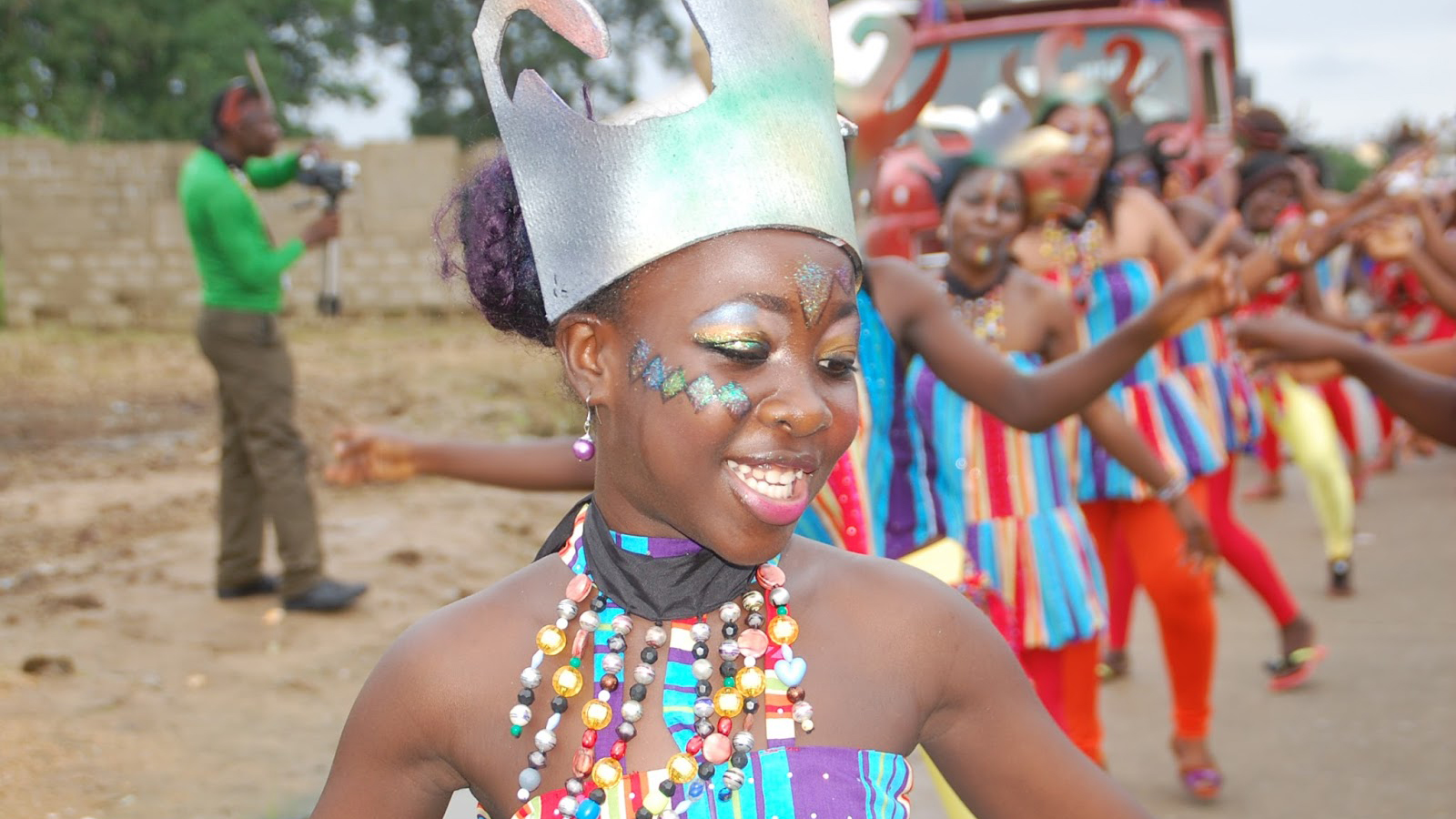
• Runsewe Calls For Faster COVID-19 Testing, Certification
With the second wave of infections sweeping across the globe, countries are bringing back measures such as curfews, bans on huge gatherings, halt to street parties and other safety guidelines to slow down the virus’ spread.
Despite initial success in containing the COVID-19 pandemic, infections have been growing rapidly in a number of countries, which may lead to lockdown of the economy.
To this end, the Director General, National Council for Arts and Culture (NCAC), Otunba Segun Runsewe, has called for deep measures of support for tourism sector in 2021, through faster COVID-19 testing and certification process.
He said that the reality of new strain of COVID-19 pandemic, coupled with very stringent measures for inbound travels across board with partial lockdown affecting outdoor recreation, hospitality business and impacting on jobs, have brought additional burden to industry players.
Runsewe, who also is President, Africa Region of the World Craft Council (WCC), stated that there’s need to create a deliberate climate of assurance and faith for the cultural tourism economy to avoid depression and continued loss of jobs in industry, which is known to create employment and empower rural development.
“We certainly welcome the news of vaccination to help curb the spread of the pandemic but we must give the Nigerian tourism and culture sector some form of protection and confidence to get hold of a strategic survival plan through faster COVID-19 testing response and certification. The industry must breath in 2021 and show grit,” he stated.
Taking a look at the bleak and worrisome situation facing the industry, the country’s number one culture ambassador believes enthronement of an effective monitoring and compliance with COVID-19 protocols, supported by faster COVID-19 testing ecosystem and certification can boost the confidence in the troubled tourism economy, strengthen capacity for service providers, create more tourism jobs as against predicted losses inspired by COVID-19.
“The fear of another strain of the pandemic is very alarming but we must respond with a chain of confidence building processes, carefully driven through one to one engagement with culture tourism practitioners and geared 1towards creating additional domestic travels, empowering the hospitality and creative sector to sustain jobs, provide services compliant with COVID-19 protocols with a decentralised faster testing and certification process that can generate double digits growth for the industry in 2021,” he said.
Runsewe said that NCAC took to strategic engagement with relevant and critical stakeholders during the year to frustrate the fear and anxiety of COVID-19 pandemic, praising the efforts of NCDC and Presidential Task Force on COVID-19 for creating the enabling environment for cultural tourism sector to thrive, adding that Nigerians should discourage the stigmatisation of victims and also remember that NCDC and the PTF consciously and deliberately took to the awareness campaign to reduce community spread.
“We should not fear 2021 but must carefully navigate all the challenges likely to face us through a dedicated bank of faster testing response mechanism, decentralised and promoted with industry leadership in order to power the sector to growth instead of doom in 2021,” Runsewe emphasised.
Recently, UNESCO assessed the measures taken by governments to respond to the impact of the COVID-19 crisis on culture professionals and on the sector as a whole, and noted that impact appears to be more severe than previously assumed, according to data collected by the organisation and contained in a new policy guide.
In the film industry, it is estimated that 10 million jobs was lost in 2020, while one third of art galleries were estimated to have reduced their staff by half during the crisis. The six-month closure was expected to cost the music industry more than $10 billion in lost sponsorships, while the global publishing market shrank by 7.5 per cent due to the crisis caused by the pandemic.
Close to 85, 000 museums around the globe suffered from COVID-19 pandemic. On the occasion of International Museum Day, two studies by UNESCO and the International Council of Museums (ICOM) confirmed that museums have been especially affected by the COVID-19 pandemic, with nearly 90 per cent of them, or more than 85,000 institutions, having closed their doors for varying lengths of time during the crisis.
As a result of the COVID-19 pandemic, across the world, most cultural institutions had been indefinitely closed (or at least with their services radically curtailed). These include libraries, archives, museums, film and television productions, theatre and orchestra performances, concert tours, zoos, as well as music- and arts-festivals. Also art exhibitions, events and performances were cancelled or postponed.
To this end, many individuals across the sector have become temporarily or permanently out of contracts or employment. The two studies, involving member states and museum professionals, were aimed at assessing the impact of COVID-19 on museums and museum institutions. They also aimed to find out how the sector had adapted to the pandemic and explore ways to support institutions in its aftermath.
Responding to the crisis, which has led to the closure of a great many cinemas, theatres and bookshops and deprived artists of professional opportunities, UNESCO has developed tools for decision-makers published as a police guide entitled Culture in Crisis: A Policy Guide for a Resilient Creative Sector.
The document is both a practical guide to help governments address the challenges artists and cultural professionals are facing during the pandemic, as well as offering advice on how to strengthen the resilience of the creative industries in the future.
“The sector, which accounts for 30 million jobs, is struggling to survive and needs our help. Culture has helped us out of the crisis. Now we have to help culture and support the diversity to which culture owes its strength,” said Audrey Azoulay, Director-General of UNESCO.
The guide presents the three main types of actions taken by governments around the world: direct support to artists and cultural professionals, indirect support to cultural and creative industries, and strengthening the competitiveness of cultural and creative industries.
For example, Uruguay and Zimbabwe have established funds to support artists, the Philippines have provided individual financial assistance to hundreds of cultural workers affected by quarantine restrictions, while Germany and the United Arab Emirates have commissioned and purchased works of art as a form of relief and income generation for artists.
Since the pandemic hit, concerts and festivals have been taking place online. While research shows that COVID-19 has accelerated this change, according to one estimate, reducing to three months developments that would otherwise have taken five years; according to experts, the UNESCO guide recalls that some 46 per cent of the world’s population have no access to an internet connection, depriving almost one in two individuals of access to arts and during confinement.
In response to the pandemic, UNESCO launched a global monitoring exercise to assess, among other things, the impact of COVID-19 on the cultural sector, with a tool in the form of a weekly bulletin entitled “Culture & COVID-19: impact and response.” The Organization also facilitated a global conversation between professionals and artists, with more than 220 ResiliArt debates in over 75 countries, including consultations with ministries of culture, civil society and the private sector. All of these formed the basis of the guide for decision-makers.
On September 28, UNESCO hosted an online international debate on Culture, Tourism and COVID-19: Recovery, Resiliency and Rejuvenation with the International Union for Conservation of Nature (IUCN), the International Council on Monuments and Sites (ICOMOS) and the International Centre for the Study of the Preservation and Restoration of Cultural Property (ICCROM).
Held on the occasion of World Tourism Day (September 27), the debate focused on new approaches to tourism in the face of the COVID-19 pandemic that is resilient and sustainable, able to support the recovery of local communities, as well as the cultural and creative industries and cultural heritage
The debate explored how the current pause in global travel can be used to develop new models and approaches to ensure a resilient and sustainable tourism recovery that supports communities, creates jobs, promotes culture and protect heritage and its transmission.
Global strategy needed in ‘watershed’ moment to steer away from unsustainable tourism, stress experts at UNESCO debate.
The online debate ‘Culture, Tourism and COVID-19: Recovery, Resiliency and Rejuvenation’ held on September 28 and highlighted the devastating impact of COVID-19 on the tourism industry and the crippling effect it is having on many World Heritage sites, intangible cultural heritage practices, cultural activities and institutions, as well as their communities.
The debate was organised by UNESCO in collaboration with the International Union for Conservation of Nature (IUCN), the International Council on Monuments and Sites (ICOMOS) and the International Centre for the Study of the Preservation and Restoration of Cultural Property (ICCROM).
Ernesto Ottone R., UNESCO Assistant Director-General for Culture, opened the debate, which brought together representatives from the tourism industry, World Heritage management authorities and tourism thought leaders, among them Fergus T. Maclaren, President of ICOMOS International Cultural Tourism Committee, Joseph King, Director of Partnership and Communication at ICCROM, Mizuki Murai, World Heritage Conservation Officer at IUCN, Anna Pollock, Conscious Travel, Dr. Suleiman Farajat, Chief Commissioner, Petra Archaeological Park, Sisa Ntshona, Chief Executive Officer of South African Tourism and Katherine Cheng, Head of Global Corporate Social Responsibility & Community Relations at Expedia Group, Inc.
Moderated by Mechtild Rössler, Director of the UNESCO World Heritage Centre, panelists discussed how this exponential growth of tourism created challenges for a number of World Heritage properties and protected areas, where carrying capacities were not established and ‘overtourism’ was displacing communities and diminishing goods and services.
The panel called for a shift towards tourism that regenerates destinations and provides economic, social and environmental benefits, while not losing sight of global challenges such as climate change.
“It is key that tourism and culture professionals work in partnership along with other sectors through this crisis,” said Ottone R., in his opening remarks. “We must ensure that cultural tourism is geared towards a path of resilience and sustainability and continues to make an important contribution to the Sustainable Development Goals.”
From overtourism to ‘undertourism’
Prior to the COVID-19 crisis, tourism was a major economic sector, employing 1 in 10 people around the world. 1.5 billion people crossed international borders in 2019, providing a key source of income for many of the world’s developing countries.
In the first half of 2020, international tourist arrivals dropped by 65 per cent due to the COVID-19 crisis, representing a loss of about US$ 460 billion in export revenues, according to UNWTO. The drop in tourism revenue has cut off important income streams for the conservation and maintenance of World Heritage properties.
Defining a strategy for change
The debate explored how the current downturn in global travel can be used to develop new models and approaches for a resilient and sustainable tourism recovery that supports communities, creates jobs, promotes culture, and protects heritage and its transmission.
To achieve this, the panelists agreed that an inclusive approach would be key. “When people are excluded, they destroy. When they are included, they protect,” said Sisa Ntshona, CEO of South African Tourism.
The debate also stressed the importance of providing the travelling public with the tools to make informed, responsible travel choices. The panelists agreed that the private sector has a role to play in sensitising people to the social and environmental considerations of the local destinations they are visiting.
“It is the narratives and stories that draw people to a destination, and it is our job as tour operators and travel promoters to work with local communities to tell these stories,”said Katherine Cheng, Head, Global Corporate Social Responsibility & Community Relations at Expedia Group.
Ms Cheng also highlighted how the global online travel agency is promoting its sustainable tourism pillars through its partnership with UNESCO on the Sustainable Tourism Pledge.






